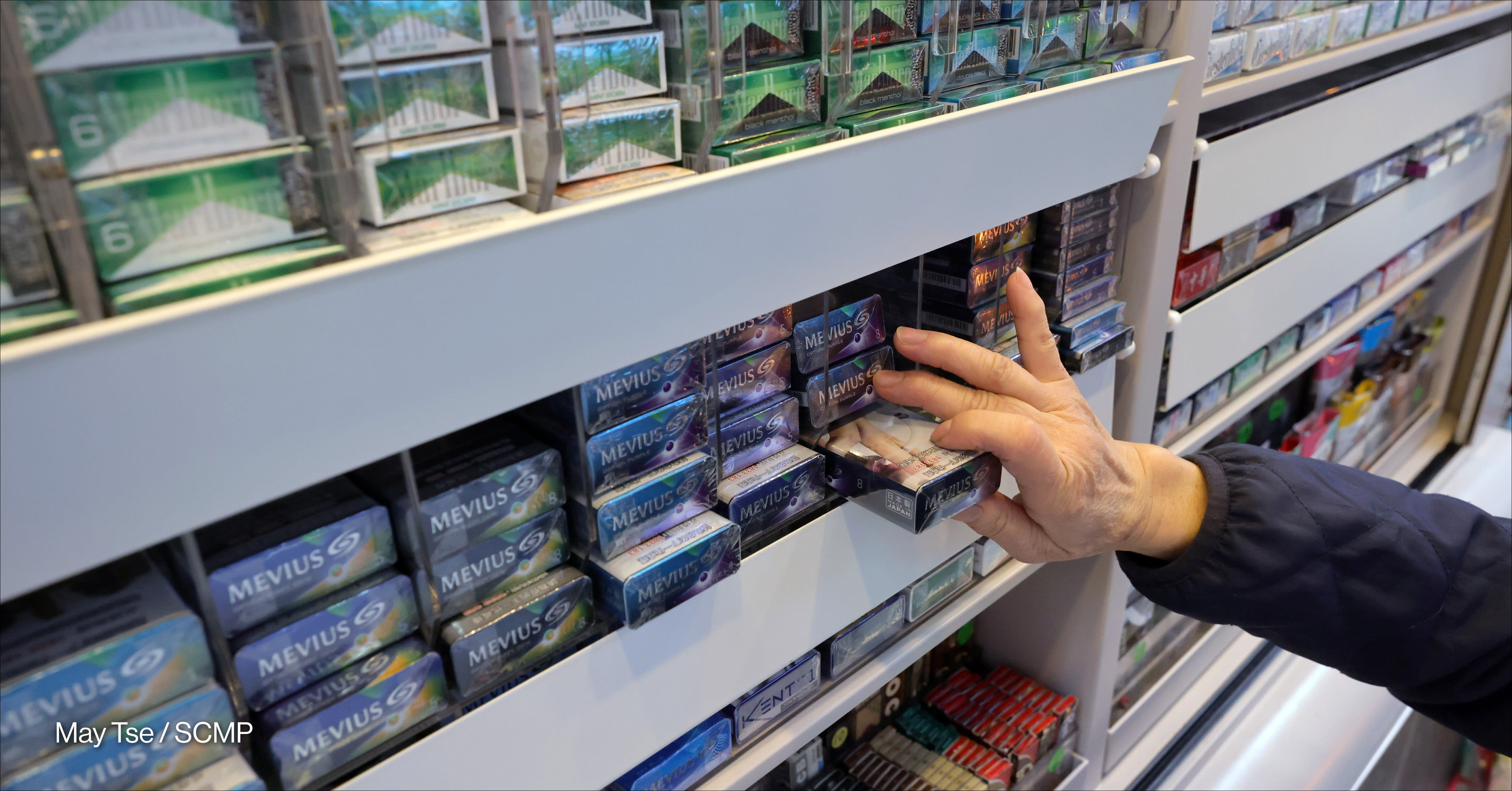At WHO's Western Pacific office, 'sitting is the new smoking'
Staff at the World Health Organization’s regional office in Manila were often served pizza, cake and sugary beverages during long meetings. But things at the office — mainly cheesy, fatty, sugary things — are changing.
Meetings are frequent and can stretch for hours at the World Health Organization’s regional office in Manila. A perk? Staff are often served snacks or meals to keep everyone focused and energized. Until just a few months ago, it was usually pizza loaded with cheese and washed down with sugary beverages. Sausage wrapped in bacon was another favorite, according to Katrin Engelhardt, technical lead for nutrition at the Western Pacific office’s NCD and health through the life course division. But things at the office — mainly cheesy, fatty, sugary things — are changing. Late last month, during a brown bag on climate change and its health impacts in the region, staff members were noshing on a lunch of pesto pasta, chicken, baked garlic bread, a serving of fruit and unsweetened watermelon juice. Right outside the conference hall, a round pink sign screams from beside an elevator: “No time for exercise? TAKE THE STAIRS!” These aren’t random healthy reminders, nor are they one-off efforts linked to a particular health event. Rather, according to Engelhardt, they are the product of a realization within the organization that if they want to see change, they need to practice what they preach. “We talk a lot about policies and population level changes at WHO, but we also forget that we have staff working at WHO that could benefit from a couple of individual level tips for them to try to change themselves,” the nutritionist told Devex. The health push falls into step with an overall goal to combat NCDs, which has become an increasing focus of the organization over the last few years, with the theme of this year’s World Health Day “beating diabetes.” Early this year, the regional office published a leaflet containing the organization’s requirements for healthy snacks and beverages during WHO meetings and events. The notebook-sized guide advises staff in charge of preparing snacks and meals to always offer water rather than soda or juice, as well as fruits and vegetables in season. If serving juice, the guide advises offering freshly made options and with no added sugar. Unsalted nuts and unbuttered popcorn are also encouraged. The guide prohibits the serving of pork for cultural sensitivities, fatty and processed meats like bacon and salami, as well as sugary snacks like ice cream and cake. “If we have meetings where we actually talk about NCD global targets of reducing sugar intake to halt incidence increase of diabetes and obesity, we can’t be serving food that triggers these,” Engelhardt said. The nutrition expert also worked with colleagues on a visual pocket guide for a healthy diet, with the hope that it would be more readily used than a text-heavy version. In 2003, the organization published a global strategy on diet, physical activity and health, which was endorsed at the 57th World Health Assembly in May 2004. But the nutrition expert said it was “a very wordy, a very heavy document to read.” The visual pocket guide contains WHO recommendations on proper food intake, such as the amount of sugar and salt an individual should be consuming in a day. And it makes the information more digestible by offering ideas on portion sizes. For example, adults on a 2,000-calorie diet shouldn’t consume more than 50 grams of sugar in a day, which is equivalent to less than 12 teaspoons of sugar. A 330-milliliters serving of fruit juice already contains about 9.5 teaspoons of sugar, according to the guide. The conversions are not 100 percent technically correct, but they’re accurate enough to give staff a better understanding of food portions, Engelhardt said. “Very few people know what the appropriate amount of a portion should be. So we tried giving practical tips, like a portion of meat is about the size of your palm, or a portion of fruit could be the size of your fist,” she said. Healthy takes off The get-staff-healthy vibe didn’t start with a formal strategy. The persons involved at the Western Pacific office did not sit down, discuss a timeline and commit to publishing guidelines as is usually the case with its technical publications. Instead, the movement was borne during informal gatherings and retreats where staff members interacted and brainstormed. Getting leadership support was also a vital factor in getting things moving, Engelhardt said, referring to Dr. Susan Mercado, the NCD and health through the life course division director at the Western Pacific office. During meetings, the director encourages participants to stand up, stressing that “sitting is the new smoking.” And some staff members were early adopters by transitioning to standing desks or sitting on exercise balls. Initially participants found it awkward, and sometimes it appeared rude when senior officials were visiting from other countries’ ministries of health. But over time, they are seeing more and more people adopting these practices, Engelhardt said. And this extends to the healthy snacks requirements. In some countries, they’ve found ministries of health taking up the guidelines and serving healthy snacks during their own meetings. Some WHO country offices in the region have also shown interest. The regional office, in fact, has just sent some 100 copies to the country office in Papua New Guinea. Having a supportive staff association also helped, Engelhardt said. The staff association at WHO Western Pacific office has introduced a number of clubs, like dance clubs or a core training club that staff members can participate in. Making things personal The healthy lifestyle vibe is gaining momentum partly because of what Engelhardt describes as a “very collegial atmosphere” at the regional office. When someone loses a bit of weight, tips and pieces of advice are shared, or a competition on who loses more takes place. But one key factor Engelhardt learned is keeping the initiatives at the level of the individual. She found this worked during brown bags, which is a common activity at the organization. These traditional brown bags don’t attract a lot of participants, and if they do, it’s usually people with technical backgrounds who already understand the subject matter. For example, during the launch of a global report on a noncommunicable disease, the presenter usually talks about the evidence of the disease, what causes it, and what countries can do — which can be uninteresting to individual staff. But when they tried organizing brown bags focused on building staff capacity, for example in reading food labels, Engelhardt found more interest, and staff in particular are requesting for her to do more of it. Sometimes during meetings, the nutritionist said they also personalize the message by asking participants to think of family members or relatives who are suffering or who may have passed away from NCDs. “I think that’s what makes NCDs real for many of us,” she said. “It’s basically in our backyard.” Staying healthy Changing people’s behaviors is one of the most difficult tasks, and the danger with WHO’s push for a healthy lifestyle is that it fades as quickly as it began. But Engelhardt said that’s why they need to keep pushing the message until it becomes the norm. And she extends the advice to organizations having a hard time pushing through. “In our division, we don’t serve [alcohol]. Initially one could consider it strange or not normal, but now it’s become the norm,” she said. “I think that’s what [would] sustain an initiative like this. If you don’t serve soft drinks in meetings, it will be frowned upon initially. But don’t give up,” she said. And an organization doesn’t need a big budget to sustain healthy initiatives like WHO’s — unless it’s aiming for big wellness programs like retreats where staff can go for a wellness weekend. Brown bags can be free to host, and publishing sheets of healthy snack ideas for staff is affordable, according to Engelhardt. Organizations also need not set up a gym, especially if they can’t afford it, or they don’t have a lot of office space. The nutritionist advised making use of dead space. This might even be your organization’s storage room, where you can place a couple of weights and where staff can do their own exercise routines like yoga or pilates. In some WHO country offices, staff members play a game of badminton in the office parking lot. “It’s the small changes that matter … You only have one body, and that body has to be with you for your entire life. So what you eat, what you drink, whether or not you’re physically active, that’s going to have a lifelong impact,” Engelhardt said. “It’s really getting that realization to staff.” Devex Professional Membership means access to the latest buzz, innovations, and lifestyle tips for development, health, sustainability and humanitarian professionals like you. Our mission is to do more good for more people. If you think the right information can make a difference, we invite you to join us by making a small investment in Professional Membership.
Meetings are frequent and can stretch for hours at the World Health Organization’s regional office in Manila. A perk? Staff are often served snacks or meals to keep everyone focused and energized. Until just a few months ago, it was usually pizza loaded with cheese and washed down with sugary beverages. Sausage wrapped in bacon was another favorite, according to Katrin Engelhardt, technical lead for nutrition at the Western Pacific office’s NCD and health through the life course division.
But things at the office — mainly cheesy, fatty, sugary things — are changing.
Late last month, during a brown bag on climate change and its health impacts in the region, staff members were noshing on a lunch of pesto pasta, chicken, baked garlic bread, a serving of fruit and unsweetened watermelon juice.
This story is forDevex Promembers
Unlock this story now with a 15-day free trial of Devex Pro.
With a Devex Pro subscription you'll get access to deeper analysis and exclusive insights from our reporters and analysts.
Start my free trialRequest a group subscription Printing articles to share with others is a breach of our terms and conditions and copyright policy. Please use the sharing options on the left side of the article. Devex Pro members may share up to 10 articles per month using the Pro share tool ( ).
Jenny Lei Ravelo is a Devex Senior Reporter based in Manila. She covers global health, with a particular focus on the World Health Organization, and other development and humanitarian aid trends in Asia Pacific. Prior to Devex, she wrote for ABS-CBN, one of the largest broadcasting networks in the Philippines, and was a copy editor for various international scientific journals. She received her journalism degree from the University of Santo Tomas.








